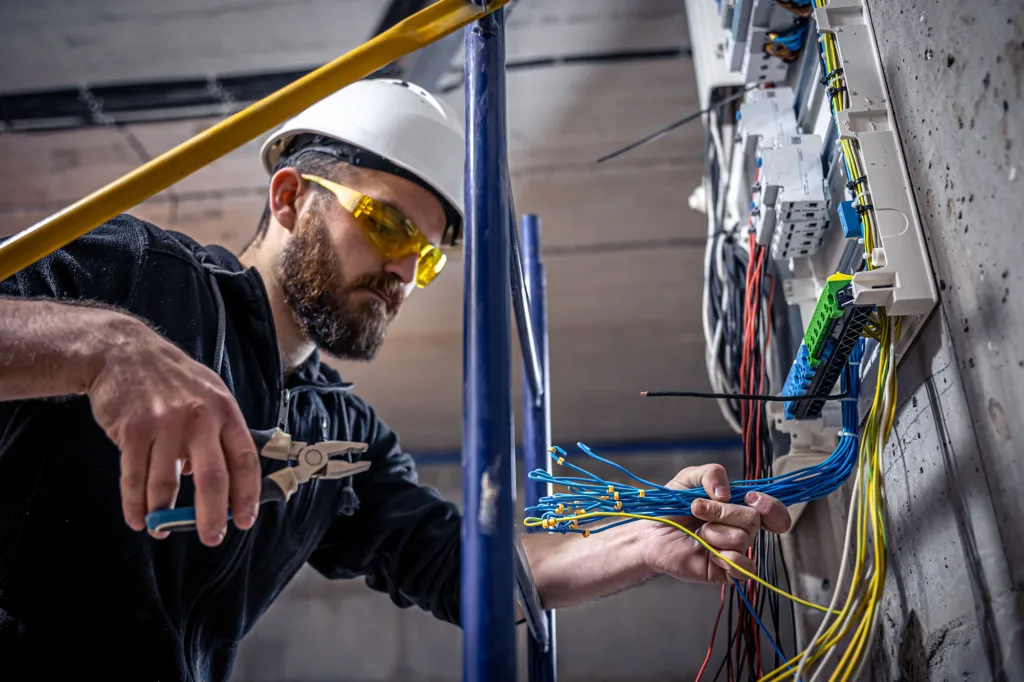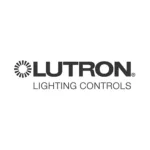Commercial electrical work is not just about getting the lights on; it’s about safety, efficiency, and long-term reliability. A poorly executed electrical installation can lead to costly downtime, compliance issues, and even fire hazards. In the UK, strict regulations govern commercial electrical installations, making it essential to choose a qualified professional who understands the legal and safety requirements.
Many businesses make the mistake of selecting an electrician based on cost alone, only to face expensive repairs or regulatory fines later. A reputable commercial electrician ensures that installations meet British Standard BS 7671, comply with workplace safety laws, and are built to handle high-demand environments. This guide outlines the key factors to consider when selecting an electrical contractor for commercial projects, helping you make a choice that safeguards your business.
1. Verify Qualifications and Certifications
Hiring an electrician without proper credentials can result in substandard work that fails to meet UK safety regulations. Ensure your chosen contractor holds the following qualifications:
Licensing Requirements
- A commercial electrician should be Part P certified, meaning they can legally work on electrical systems in non-domestic buildings.
- Contractors should be registered with an approved body, such as NAPIT or the ECA, ensuring they meet industry standards.
- If your project involves high-voltage installations, look for an electrician with City & Guilds 2391 or 2394/2395, which covers electrical inspection and testing.
2. Assess Experience and Track Record
The complexity of commercial electrical systems demands an experienced contractor who understands industry-specific requirements.
Industry-Specific Experience
A retail store, for instance, has vastly different electrical needs than a manufacturing plant. The electrician should have prior experience in your sector, ensuring they understand:
- Load requirements for industrial machinery.
- Emergency lighting standards in offices and public buildings.
- Fire safety compliance for commercial kitchens.
Portfolio and References
Ask for case studies or references from previous projects to verify their expertise. A reliable contractor should provide:
- Photographs of completed installations.
- Testimonials from past clients.
- Evidence of compliance with building regulations.
If your business requires commercial lighting installation, make sure your chosen contractor specialises in energy-efficient and compliant lighting solutions.
3. Ensure Compliance with Safety Standards
UK commercial electrical work must comply with BS 7671 (IET Wiring Regulations). These guidelines ensure that electrical systems are:
- Safe for users and equipment.
- Energy-efficient, reducing operational costs.
- Compliant with fire safety laws and building codes.
Safety Protocols
A qualified electrician should follow rigorous safety measures, including:
- RCD installation to prevent electric shocks.
- Surge protection to safeguard sensitive equipment.
- Emergency shutoff systems for high-risk areas like server rooms.
For an overview of legal safety requirements, check the Health and Safety Executive (HSE) website.
4. Evaluate Range of Services Offered
A good electrical contractor should offer more than just installations. Look for a company that provides:
Comprehensive Services
- Electrical design and consultation – Ensuring installations are tailored to your building’s infrastructure.
- Ongoing maintenance – Preventing breakdowns and ensuring longevity.
- 24/7 emergency repairs – Minimising downtime if an issue arises.
Specialised Services
If your business requires additional solutions like energy-efficient upgrades or EV charging stations, ensure the contractor has expertise in these areas.
For businesses needing commercial electrical services that include emergency support and long-term maintenance, it’s vital to choose an electrician with a track record of reliability.
5. Check Insurance Coverage
Electrical work carries inherent risks, making insurance coverage non-negotiable.
Liability Insurance
A reputable contractor should have public liability insurance to cover:
- Property damage caused during installation.
- Accidental injuries to staff or clients due to electrical faults.
Workers’ Compensation
If the electrician has employees, they should provide employer’s liability insurance, ensuring any injuries sustained on the job are covered.
Without proper insurance, your business could be held responsible for accidents or damages.

6. Review Communication and Professionalism
A reliable commercial electrician should maintain transparent and professional communication throughout the project.
Transparent Communication
- Provides clear timelines and cost estimates.
- Explains potential risks and solutions upfront.
- Offers regular updates during the installation process.
Professional Conduct
- Arrives on time and adheres to agreed schedules.
- Maintains a clean and organised workspace.
- Respects business operations and minimises disruption.
If an electrician is unresponsive or provides vague answers to technical questions, it’s a sign to look elsewhere.
7. Compare Pricing and Obtain Detailed Quotes
While cost is a factor, it shouldn’t be the sole deciding element. Cheap services often mean lower-quality work or non-compliance with regulations.
Comprehensive Quotations
When comparing quotes, check if they include:
✔ Material costs (e.g. wiring, circuit breakers).
✔ Labour costs (per hour or per job).
✔ Permit fees (if applicable).
Value Over Cost
An experienced and certified electrician may charge more, but they offer:
- Higher safety standards.
- Compliance with UK electrical regulations.
- Long-term cost savings due to quality installations.
8. Assess Availability and Response Time
A good commercial electrician should be able to accommodate your project schedule and respond to emergencies.
Project Timelines
Confirm whether they:
- Can start work within your required timeframe.
- Have enough staff to handle large-scale installations.
- Offer after-hours services to avoid business disruptions.
Emergency Response
If your business relies on continuous operations, ask whether they provide:
- 24/7 emergency callouts.
- Rapid troubleshooting to minimise downtime.
For ongoing electrical support, visit Wave Electrical Solutions for professional services tailored to your business needs.
FAQs
Why is it essential for a commercial electrician to be NAPIT registered?
NAPIT registration ensures the electrician has been assessed for competence and compliance with UK safety standards. This guarantees that installations are safe and meet regulatory requirements.
How often should commercial electrical installations be inspected?
It depends on the environment, but most businesses should conduct periodic inspections every 3-5 years. High-risk environments (e.g. factories, kitchens) may require more frequent checks.
What should be included in a commercial electrician’s insurance coverage?
A contractor should have public liability insurance (covering accidental damages) and employer’s liability insurance (covering worker injuries).
Conclusion
Choosing a qualified commercial electrician is a long-term investment in safety and efficiency. While cost is a factor, prioritising experience, certification, and compliance with UK regulations is essential. Before hiring, verify credentials, request references, and ensure the contractor offers a full range of services, from installation to emergency support.










